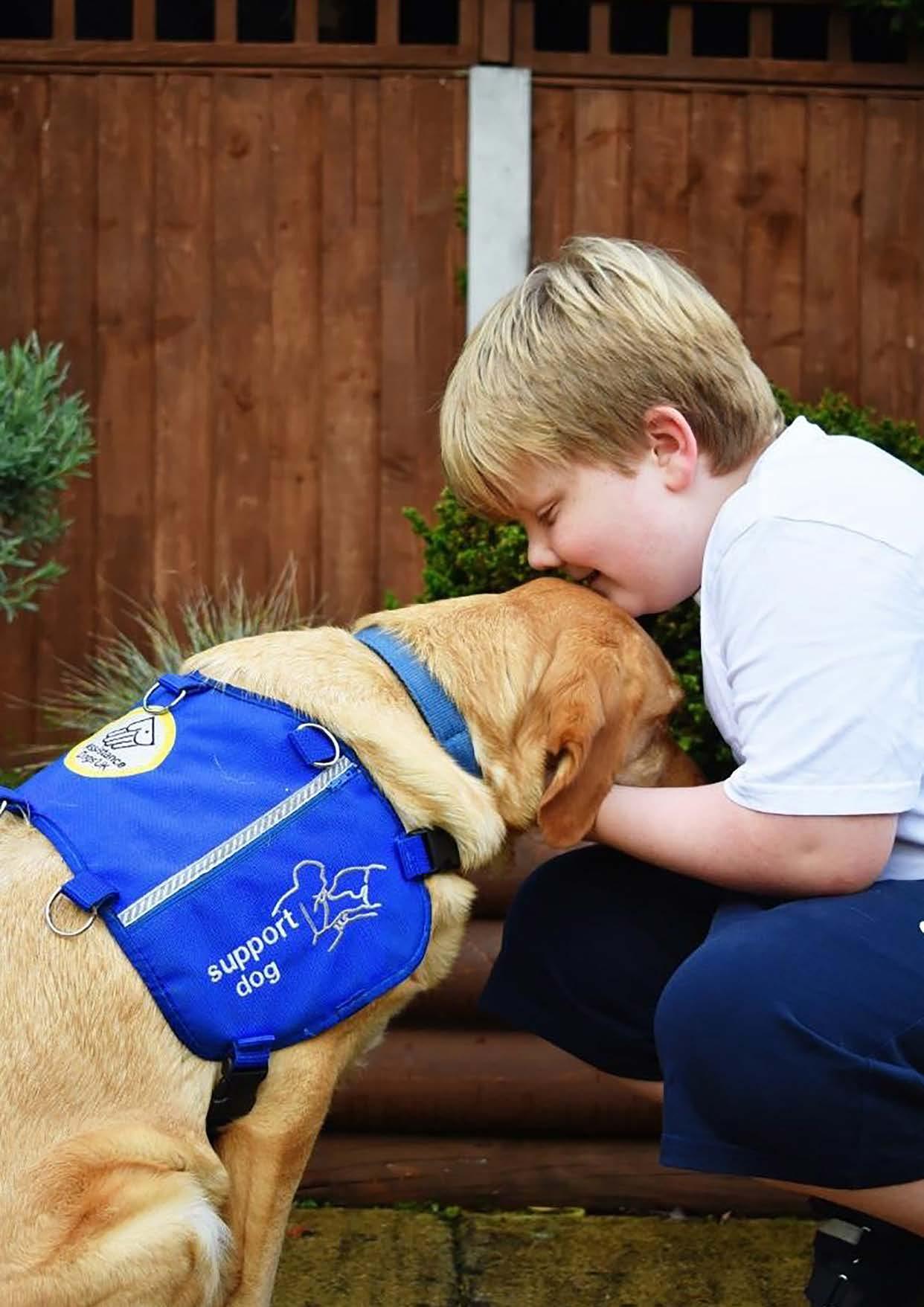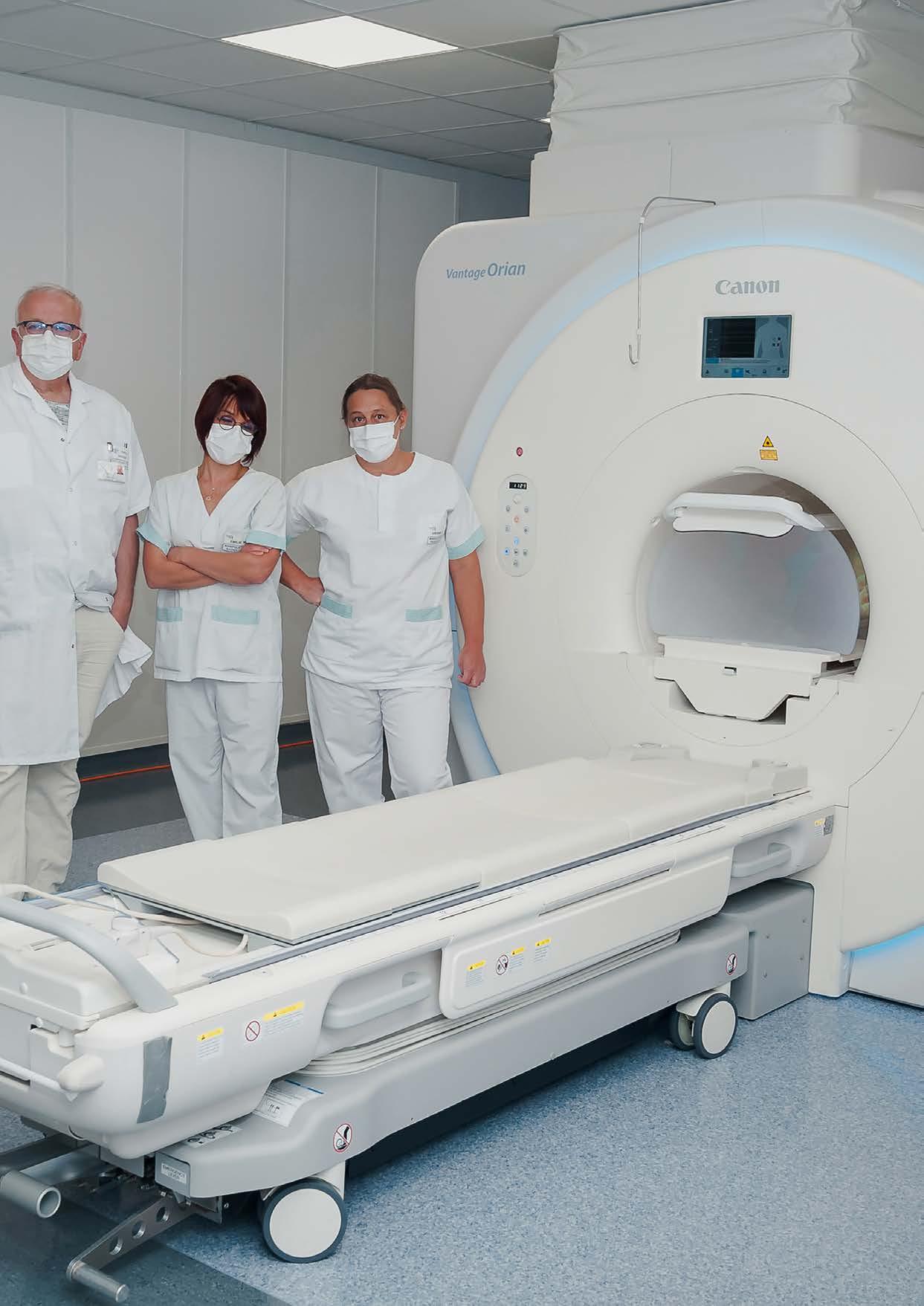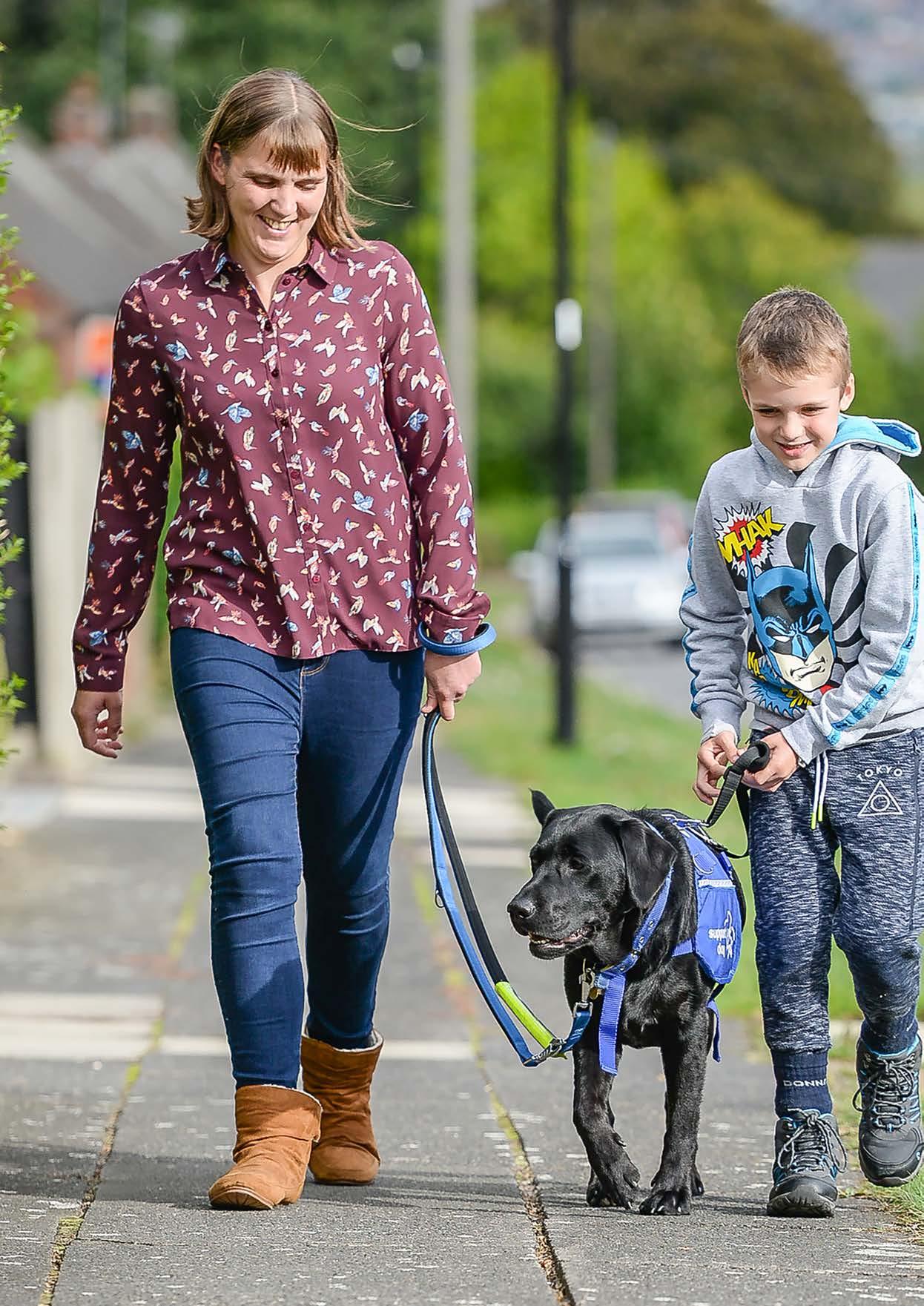
4 minute read
Support Dogs – Hero Hounds Transforming People’s Lives
For almost 30 years, national charity Support Dogs has been transforming their lives of people with a range of serious medical conditions – through its extraordinary canine heroes. The charity trains assistance dogs for children with autism and adults with epilepsy and disability, enabling them to lead safer, more independent lives. It specialises in three programmes:
• Autism assistance dogs for children with autism. The dogs are trained to provide safety for the child and reduce stress in social environments.
Advertisement
• Seizure alert dogs for adults with epilepsy. The dogs are trained to provide a 100% reliable, up to an hour in advance warning of an epileptic seizure, enabling the client to find safety and be in control over their seizure.
• Disability assistance dogs for people with physical disabilities and medical conditions such as MS or cerebral palsy.
The dog is trained to act effectively as an individual carer, providing 24/7 support and helping with a huge range of daily tasks tailored to the individuals needs such as fetching medication opening and closing doors, raising the alarm and assisting with dressing and undressing.
Support Dogs currently helps families across the UK and saves the NHS an estimated £19 million a year.
Support Dogs is unusual in that 1 in 4 of its dogs are either rescue dogs or were unwanted pets, and it prides itself on being the charity that gives unwanted dogs a second chance.
Whatever the condition and for whatever programme, its amazing dogs are trained to be consistent and reliable in the care they give and are truly life-transforming for their owners.
The pandemic throughout 2020 and 2021 has had a huge impact on many charities, including Support Dogs. There has been a disruption in training for many of the dogs. Trainers have had to turn to a virtual world, with the help of dog foster families learning from the specialist dog trainers over Zoom, to try maintain training as best as possible.
The numerous lockdowns have also caused difficulty for training dogs to interact with people and communities, making it incredibly difficult to complete training in optimum environments.
It’s important, now more than ever, to spread the word of the Support Dogs charity – to continue this life-changing work, clear waiting lists and relieve the NHS where and when possible.
Providing over 1.2 million hours of support for families affected by autism, epilepsy or a wide range of medical disabilities.
Visit www.supportdogs.org.uk to find out more.
Our training has enabled us to develop 50 new partnerships...
94% say their perspective of what they can achieve in life has changed since their support dog. 77% say the number of care hours they receive from partner/ child has reduce since their support dog
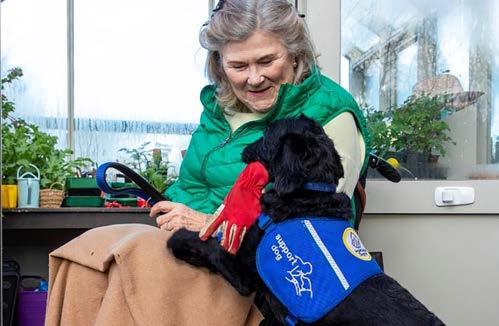
How super-dog Wadsley gave Brogan her life back
Seizure alert dog Wadsley is helping Brogan Evans live the lifestyle she enjoyed before she was diagnosed with epilepsy.
Before wonder-dog Wadsley came into her life, Brogan Evens was struggling to cope with up to four seizures a day.
Now Brogan, aged 24, is able to lead near-normal life, safe in the knowledge that Wadsley will give her a 100 per cent 48-minute advance warning of an oncoming epileptic seizure. As well as gaining profound peace of mind, Brogan has been able to resume an active lifestyle and can now go swimming and climbing mountains. She can even play rugby – with Wadsley sitting by the touchline and making sure she’s safe to continue by giving her a clean bill of health at half time!
Brogan developed epilepsy at the age of 17, when at one stage, she had up to 14 seizures a day. Her hopes for a career in the army as a dog handler had to be shelved.
“My life before Wadsley was miserable,” she says. “I knew what life was like before and I wanted that back. I couldn’t do anything. I couldn’t have a bath or a shower in case I had a seizure and drowned or fell and banged my head. I couldn’t cook or leave the house; so many of things that people take for granted I wasn’t allowed to do any more I missed the independence I had before epilepsy.”
After intensive training with Support Dogs, Brogan and Wadsley qualified as a seizure alert partnership two years ago and since then Brogan’s seizures have dramatically reduced. And having Wadsley around during lockdown has been a huge bonus.
“Having Wadsley and getting to leave the house each day for his walk brought some normality into my life and actually reduced my stress levels,” adds Brogan, who is studying for a personal trainer qualification.
“I’ve had a huge improvement to my quality of life. All the things I couldn’t do before I can quite happily do now.
“The number of serious seizures has gone down – partly because I’m less stressed, and because I’m able to go out and live my life, which I couldn’t do before. Emotionally I’m in a much better place too, and none of that would have happened if it wasn’t for Support Dogs and my best friend Wadsley.” //
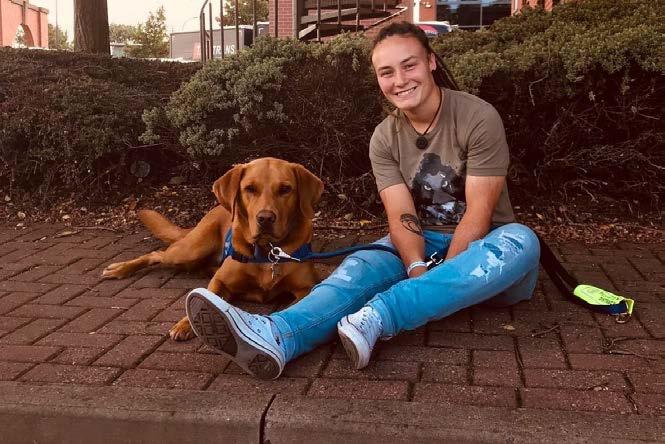
Brogan and Wadsley, an epilepsy seizure alert support dog partnership
